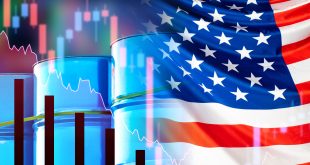The United States has finalized rules to limit investments in critical technology sectors in China, such as artificial intelligence, on national security grounds, according to the Treasury Department. These restrictions will prevent U.S. citizens, permanent residents, and U.S.-based companies from engaging in transactions involving technologies like AI, semiconductors, and quantum computing. Additionally, U.S. investors will need to inform the Treasury about investments in certain less advanced technologies that could pose a threat to national security.
Implementation and Objectives
Set to take effect on January 2, these curbs aim to ensure that U.S. investments are not used to advance key technologies by those who might threaten national security. Paul Rosen, the assistant secretary of the Treasury for Investment Security, emphasized that U.S. investments, including intangible benefits like managerial assistance and access to investment and talent networks, should not aid countries of concern in developing their military, intelligence, and cyber capabilities. Rosen stated, “U.S. investments, including the intangible benefits like managerial assistance and access to investment and talent networks that often accompany such capital flows, must not be used to help countries of concern develop their military, intelligence, and cyber capabilities.”
Background and Reactions
These measures follow President Joe Biden’s executive order last year targeting investments in semiconductors, microelectronics, quantum computing, and certain AI capabilities. Biden warned that U.S. investments could help adversaries develop sensitive technologies critical to their military, intelligence, surveillance, or cyber-enabled capabilities. This executive order marked a significant move in the administration’s efforts to curb China’s technological advancements. China’s Ministry of Foreign Affairs criticized Biden’s executive order, calling it an attempt to “engage in anti-globalization and de-sinicization.” The ministry expressed strong dissatisfaction and opposition to the U.S. restrictions on investment in China and lodged formal representations with the United States.
Historical Context and Strategic Importance
The decision to impose these restrictions is rooted in the broader strategic competition between the U.S. and China, especially in the realm of technology and innovation. Over the past few years, both nations have been vying for dominance in critical tech sectors, which are seen as key to future economic and military power. Technologies such as AI, quantum computing, and advanced semiconductors are at the forefront of this competition. The U.S. government has repeatedly expressed concerns that unchecked investment in these areas could potentially bolster China’s capabilities in ways that pose direct threats to American national security.
Broader Implications
The ripple effects of these restrictions are likely to be felt across global financial markets and industries. U.S. companies involved in the production and development of advanced technologies will need to navigate these new regulations carefully, balancing their business interests with national security considerations. There is also the potential for retaliatory measures from China, which could further strain economic and diplomatic relations between the two countries. Moreover, this move may encourage other nations to adopt similar measures, leading to a more fragmented global investment environment.
Trump’s Criticism of the CHIPS Act
In a related incident, Former President Donald J. Trump criticized the CHIPS and Science Act, a bipartisan law aimed at reducing America’s reliance on Asia for semiconductors, during an episode of “The Joe Rogan Experience.” Trump argued that the federal government should have imposed tariffs instead of providing subsidies to encourage domestic chip manufacturing. He claimed that the law benefits wealthy companies without ensuring significant investment in the U.S. “That chip deal is so bad,” Mr. Trump said. “We put up billions of dollars for rich companies.”
The CHIPS Act and Its Impact
The CHIPS Act, signed by President Biden, aims to increase the domestic supply of semiconductors by providing $39 billion in grants and federal tax credits. The Biden administration has awarded over $30 billion to companies, including Intel and Taiwan Semiconductor Manufacturing Company (TSMC). TSMC plans to build a major U.S. hub in Phoenix, creating about 6,000 jobs. The goal of the CHIPS Act is to ramp up the domestic supply of semiconductors, crucial for the U.S. economy. Semiconductors are used in everything from cars to weapons systems and computers, making them integral to national security.
Political Reactions
Vice President Harris’s campaign criticized Trump’s remarks, arguing that his policies would harm U.S. manufacturing jobs. The Biden administration maintains that the CHIPS Act is crucial for national security and reducing reliance on foreign chips, a problem highlighted during the pandemic. During the pandemic, factories overseas shuttered to prevent the virus from spreading, leading to a severe shortage of semiconductors. This shortage caused prices for cars and other products to surge as demand far outpaced supply.
Anna Kelly, a spokeswoman for the Republican National Committee, defended Trump’s comments, emphasizing his previous efforts to lower taxes for American manufacturers and impose tariffs to support domestic production. She noted that tech leaders like Elon Musk back Trump for his stance on ending dependence on foreign supply chains.
Future Outlook
Looking ahead, the implementation of these investment restrictions and the ongoing trade and technology tensions between the U.S. and China will likely shape the global economic landscape for years to come. Businesses and investors will need to stay informed and adaptable as they navigate this evolving environment. The broader implications of these policies on innovation, international cooperation, and economic growth will be closely watched by policymakers and industry leaders worldwide. The hope is that through strategic policy-making, national security can be safeguarded without stifling technological progress and global trade.
This period marks a pivotal moment in the intersection of technology, economics, and national security, with outcomes that will undoubtedly influence future generations.
 Noor Trends News, Technical Analysis, Educational Tools and Recommendations
Noor Trends News, Technical Analysis, Educational Tools and Recommendations




